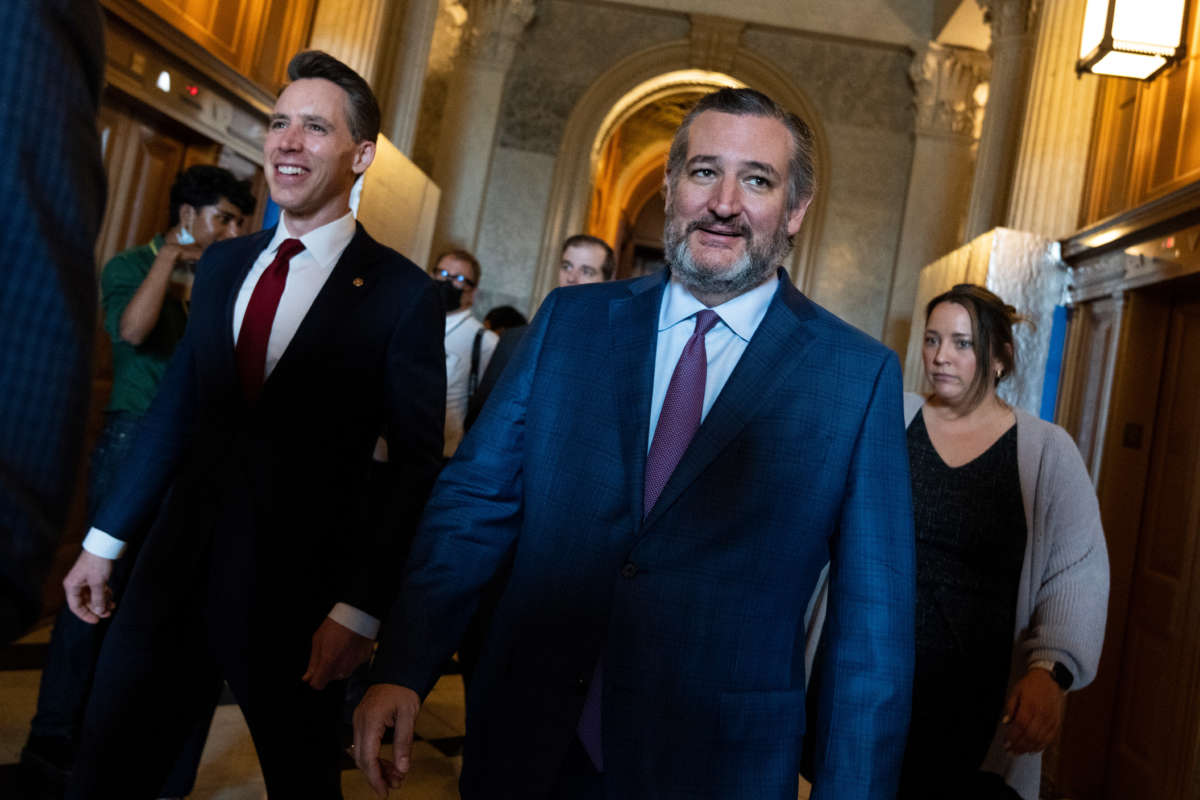Truthout is an indispensable resource for activists, movement leaders and workers everywhere. Please make this work possible with a quick donation.
The Supreme Court has sided with Sen. Ted Cruz (R-Texas) along partisan lines in a ruling on campaign fundraising that “injures the integrity” of the political process, according to one dissenting justice.
The case involved Cruz’s use of post-election campaign fundraising dollars in order to pay himself back for personal loans he took out and spent during his most recent senatorial election. A federal law had previously established a cap on the amount of funds a candidate could raise following an election in order to recoup money they borrowed during the actual campaign.
In a 6-3 decision issued on Monday, the Supreme Court deemed such caps an unconstitutional violation of a person’s First Amendment speech rights. All six conservative bloc justices sided with Cruz on the issue, while all three liberals on the Court dissented.
Chief Justice John Roberts, writing for the majority opinion, said that laws regulating campaign fundraising “must be at least justified by a permissible interest” — but Justice Elena Kagan, in a blistering dissent to that opinion, suggested that the Court’s decision on Monday would open up a Pandora’s box of issues and would have far-reaching consequences.
The law that was challenged does in fact address a permissible interest, Kagan noted — after all, it was passed to stand against “a special danger of corruption” that exists when “political contributions … line a candidate’s own pockets,” she wrote.
“The Court greenlights all the sordid bargains Congress thought right to stop…. In allowing those payments to go forward unrestrained, today’s decision can only bring this country’s political system into further disrepute,” Kagan went on, adding that the decision by the conservative-led Supreme Court “injures the integrity, both actual and apparent, of the political process,” and will allow for “crooked exchanges” and “dirty dealing” in the future.
When donors, particularly those who are wealthy or who represent corporate interests, “give money to repay the victor’s loan, they know — not merely hope — he will be in a position to perform official favors,” Kagan continued in her dissent.
“The recipe for quid pro quo corruption is thus in place,” she said.
The ruling further erodes a 20-year-old campaign finance law, formally called the Bipartisan Campaign Reform Act of 2002, that has been whittled away by earlier rulings from the Court — including the infamous Citizens United ruling from 2010, which simultaneously stated that “corporations are people” and that “money equals speech.”
The result of that ruling and others like it has been a “proliferation of super PACs, which can accept and spend unlimited amounts of money to influence elections, and the rise of dark money, which is undisclosed political spending that can come from any special interest, even foreign countries,” wrote Tiffany Muller, President of End Citizens United, in a 2020 article for Inequality.org on the 10-year anniversary of the ruling.
Media that fights fascism
Truthout is funded almost entirely by readers — that’s why we can speak truth to power and cut against the mainstream narrative. But independent journalists at Truthout face mounting political repression under Trump.
We rely on your support to survive McCarthyist censorship. Please make a tax-deductible one-time or monthly donation.
